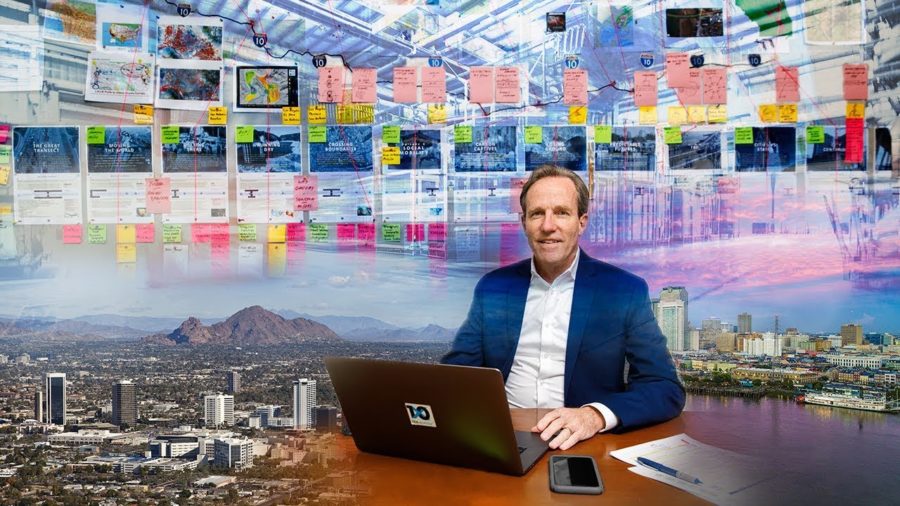Duke Reiter: In the course of my experience I’ve lived in multiple cities, including two whose very existence has been questioned, New Orleans and Phoenix, and in each case around the issue of water. Obviously in the case of one too much water, the other too little. One below sea level, one in an arid desert environment.
I moved to the city of Phoenix and to ASU in 2003. And it was from here in 2005 that I observed hurricane Katrina hit New Orleans and the waters overtop the levee system there. That was a very predictable disaster. The city of New Orleans has been imperiled by water from its founding.
In Phoenix, it’s a very different situation, obviously. This is a hot climate, and one profoundly lacking in water. But what these two cities have in common is that each were made possible by extraordinary feats of engineering to either keep water out of the city, or to bring water to it. And in the case of Phoenix across hundreds of miles of desert. These are highly artificial constructions, and their fragility is built right into the structures that makes them possible.
One of the things that New Orleans and Phoenix share is that they’re both on the same street, so to speak. The US interstate I‑10. I’ve noticed frankly that many of the other cities along this transect reveal in addition to water some of the major issues of our time in their highest relief.
Take for example global trade and commerce. Certainly registered in one of the largest ports in the world, Los Angeles, and one of only two megacities in the United States. Or the future of energy, central to the question of Houston and how we will continue to either burn fossil fuels or find alternatives. Or in the very news today. Immigration, what’s a border. How could that be more profoundly registered than in the city of El Paso or Ciudad Juárez, a bi-national city?
We could be learning from the lived experience of people in the I‑10 corridor. We should be listening to their stories, recording them, and responding to the issues in their communities.
I would suggest that universities have a unique obligation to show us who we are, what we’re becoming, and how we can respond to alternative futures. Accordingly, we’ve built a project called Ten Across. A project that spans the country from the Pacific to the Atlantic, runs through the three largest states in the union. This is a project we think is uniquely suited to ASU, the new American University. Can, for example, we look at potential disasters, things that are highly predictable, and avoid them? I think as humans we also have an innate aversion to thinking that far into the future, to planning. But the Ten Across project is about suggesting the value of doing so. Of responding to challenges and opportunities and creating a better world.
